Year 4 Measurement Worksheets
Adding and Subtracting Litres and Millilitres
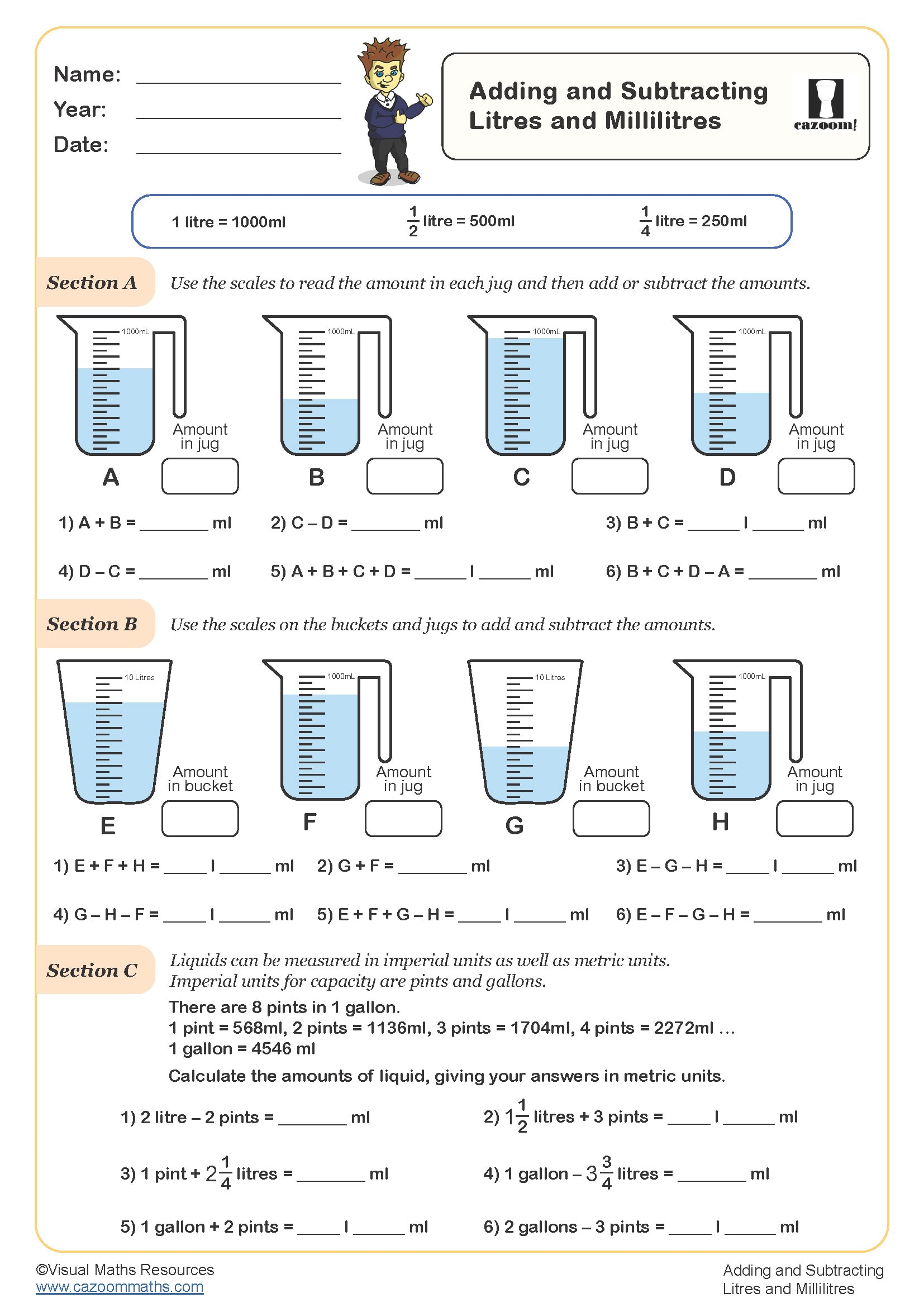
Converting Between 12 and 24 Hour Time (A)
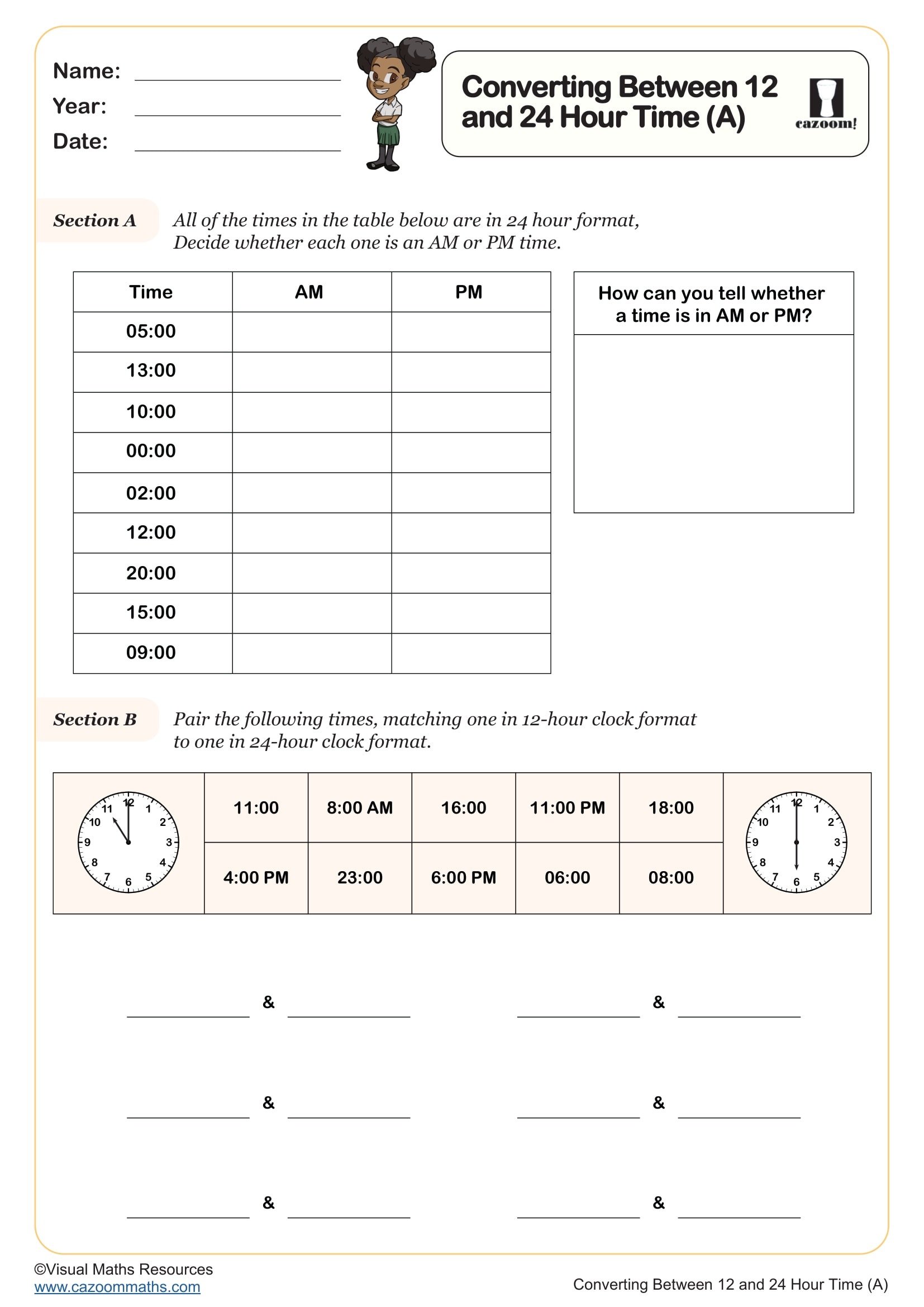
Converting Between 12 and 24 Hour Time (B)
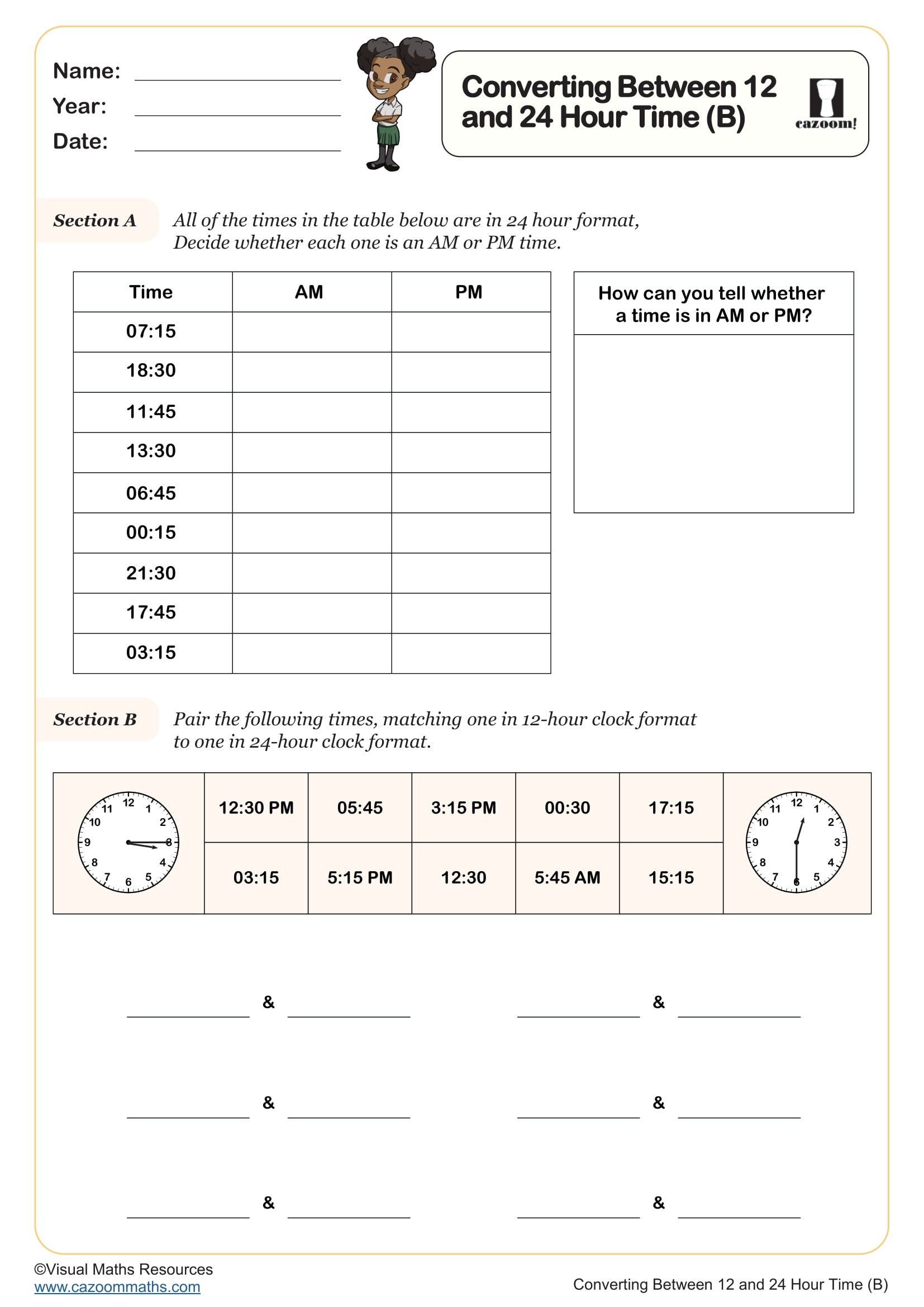
Converting Between 12 and 24 Hour Time (C)
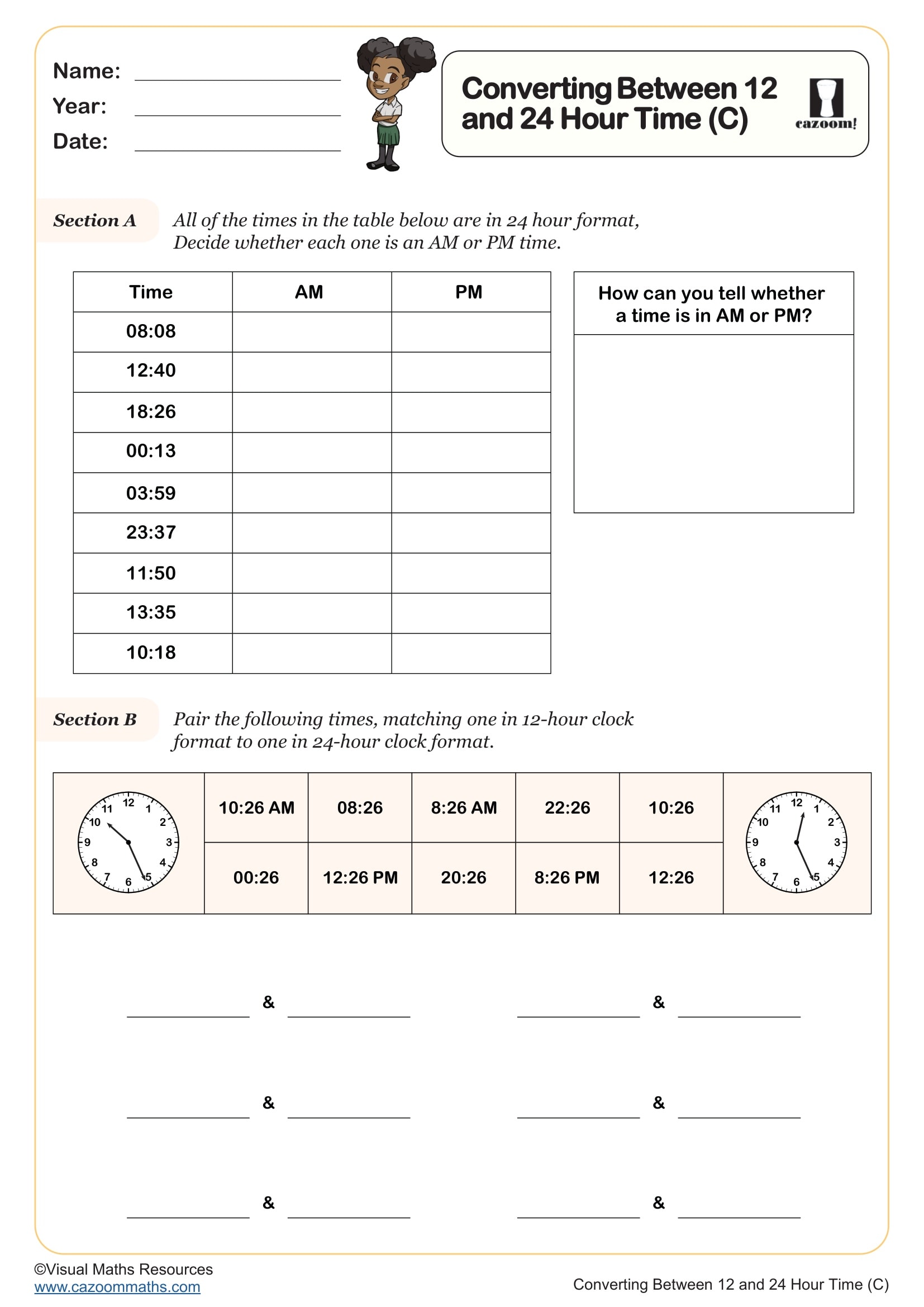
Estimating Shopping Bills
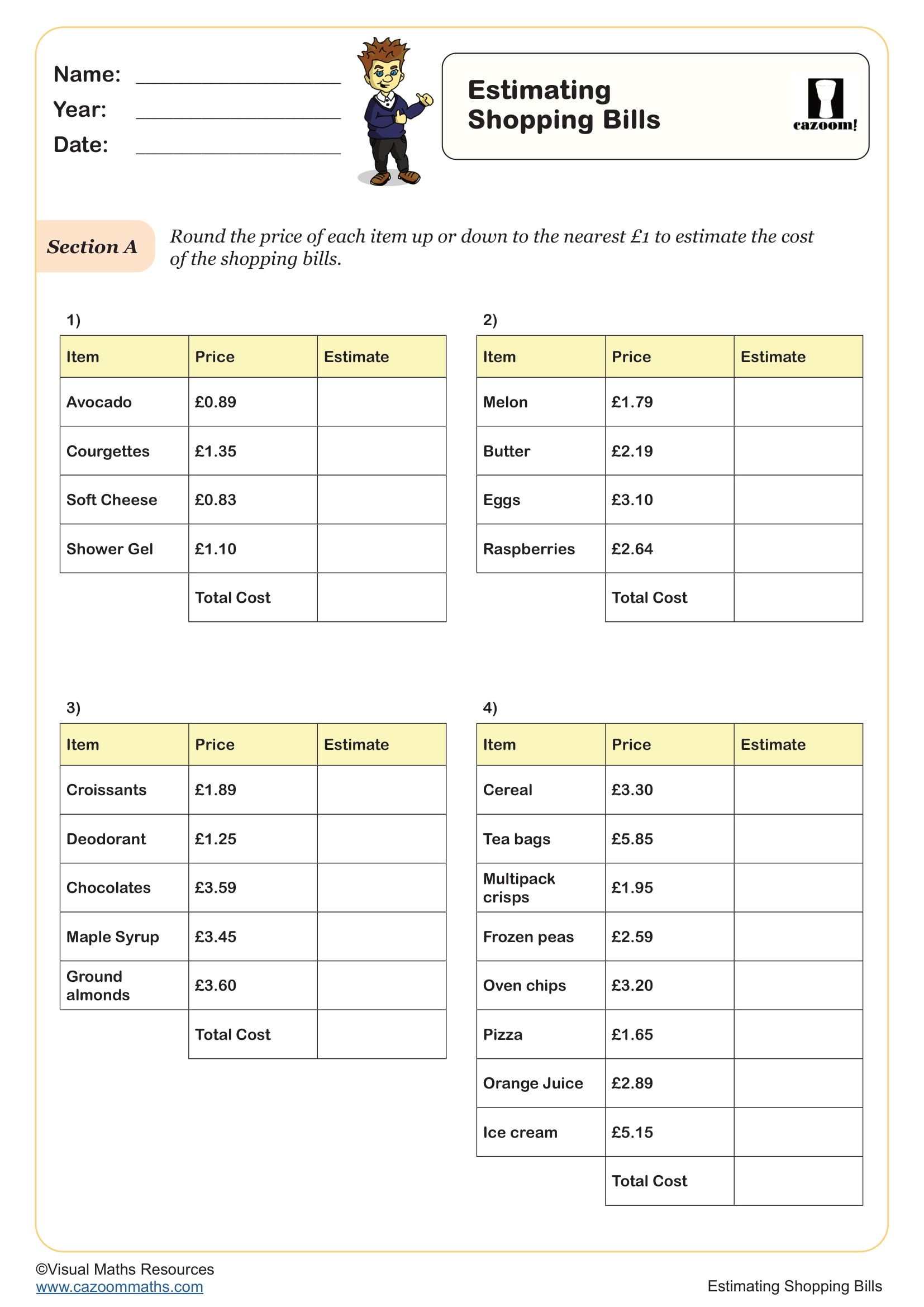
Giving Change (A)
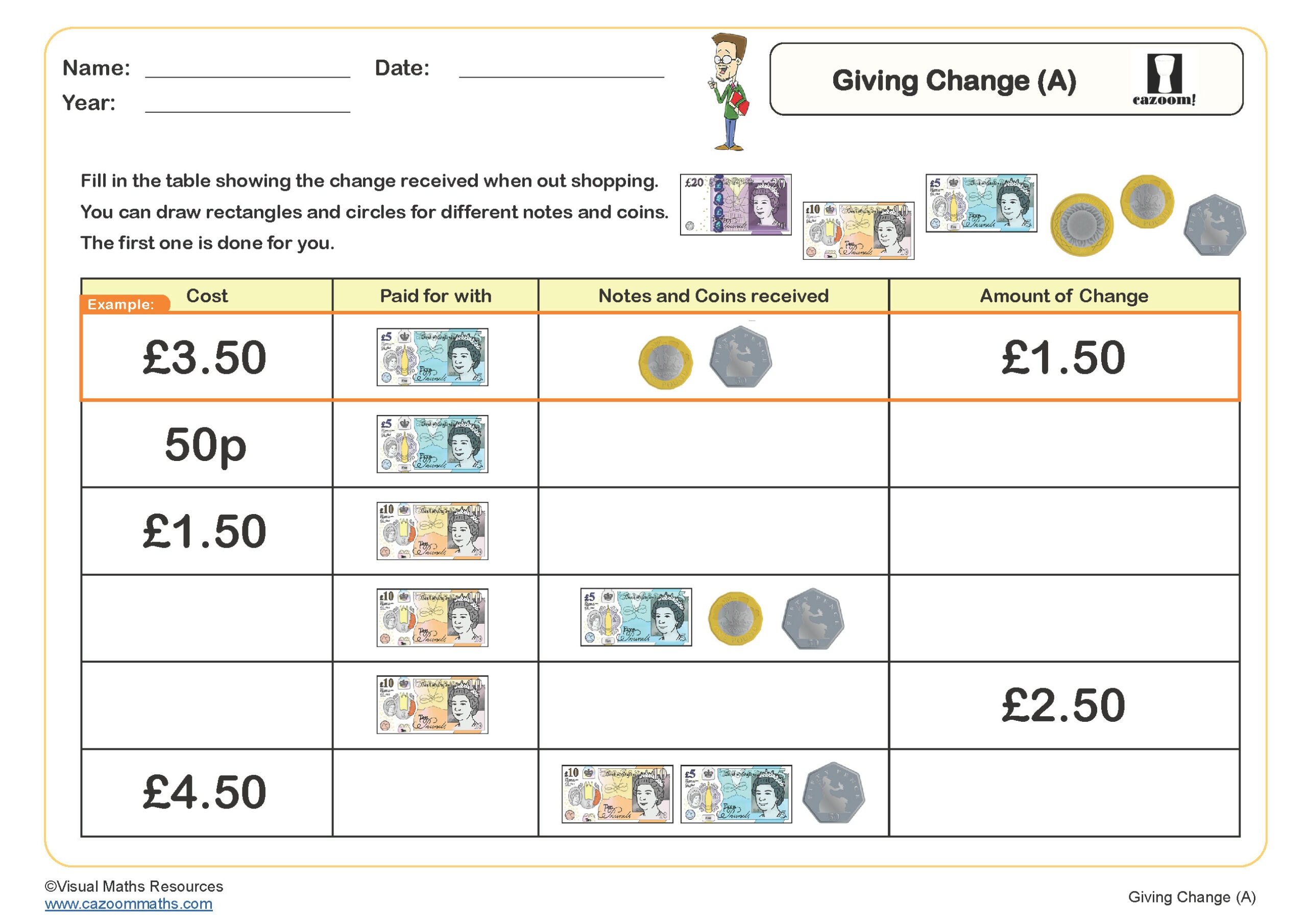
Giving Change (B)
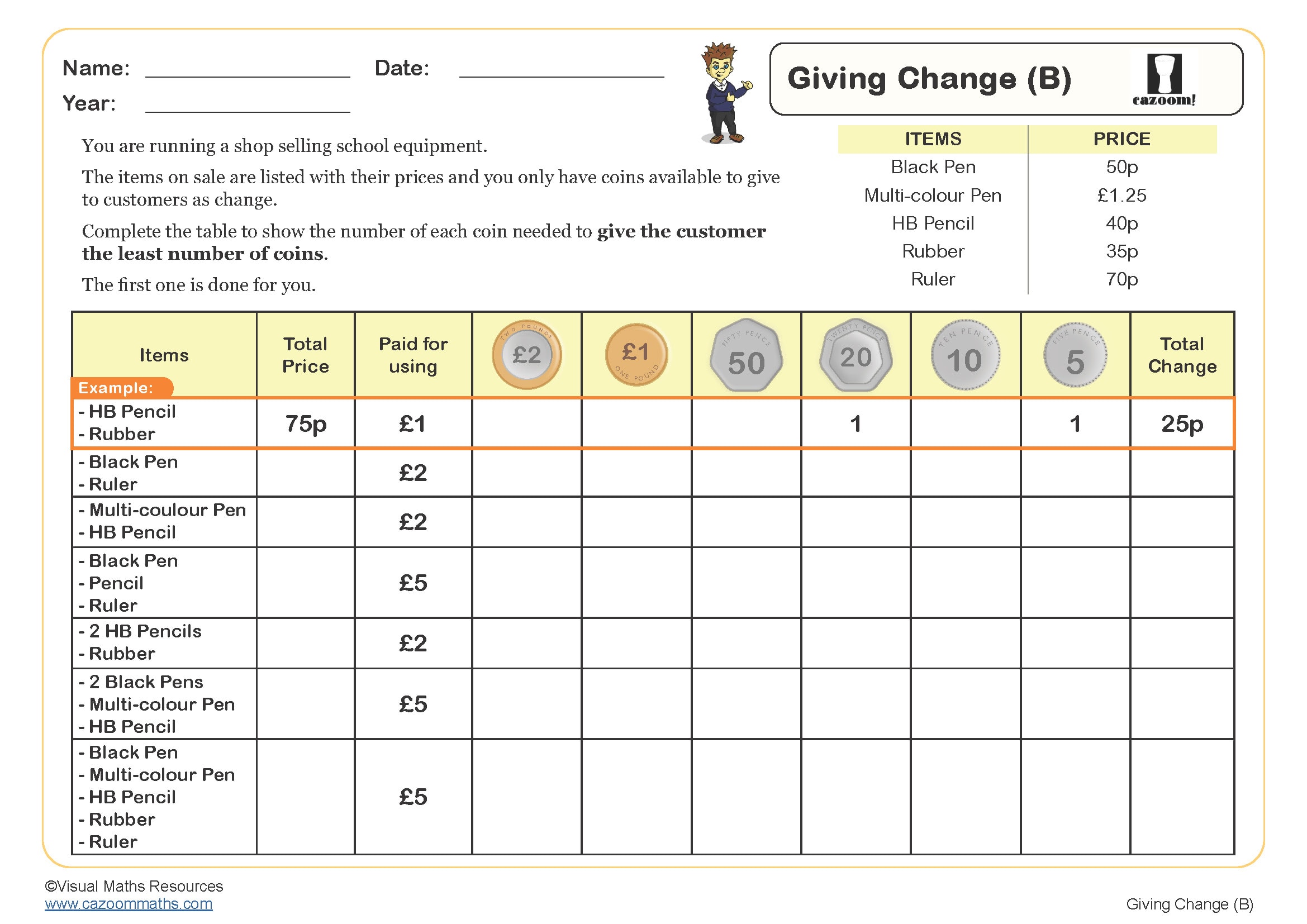
Giving Change (C)
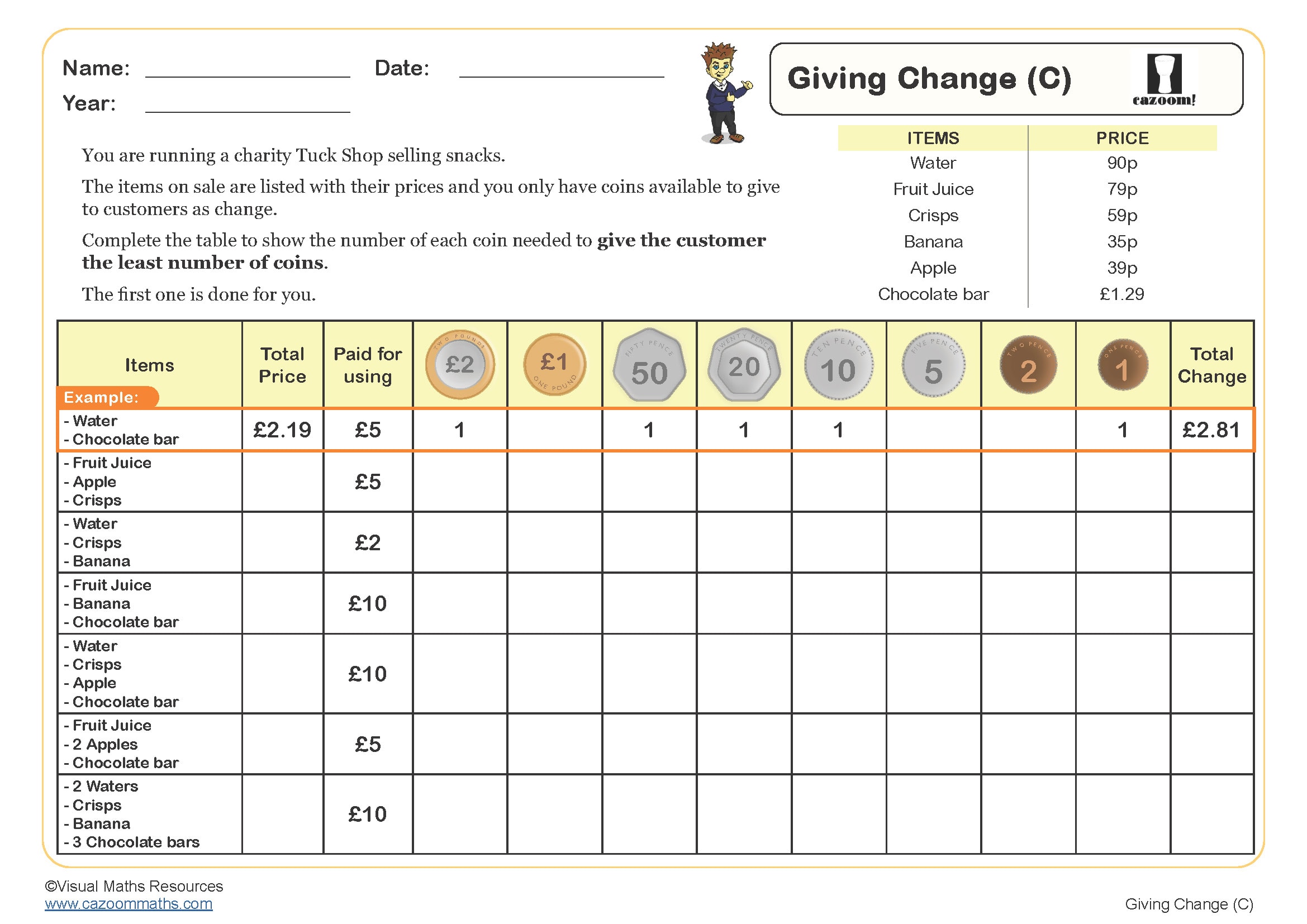
Kilometres and Metres
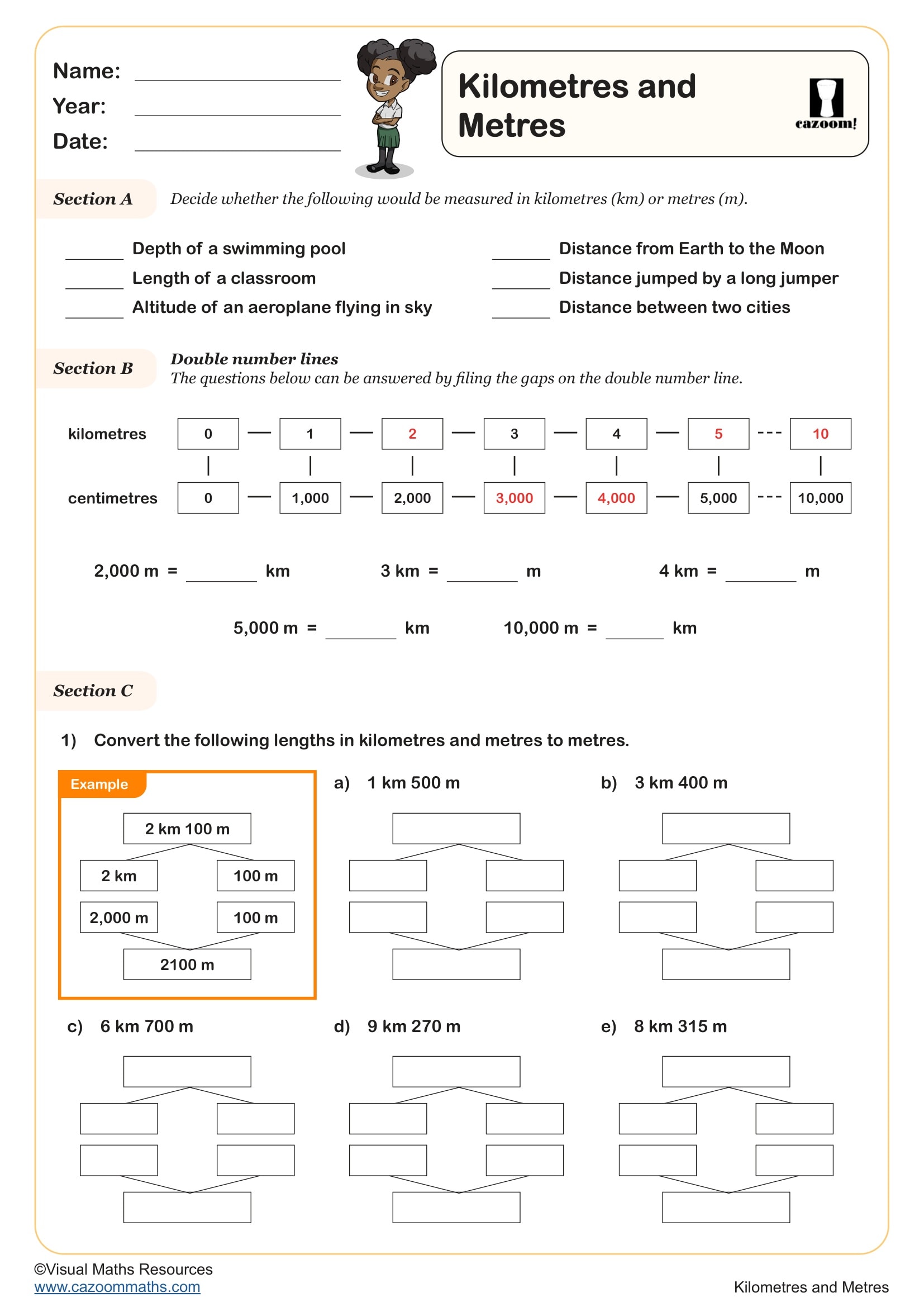
Measuring Perimeter in Millimetres
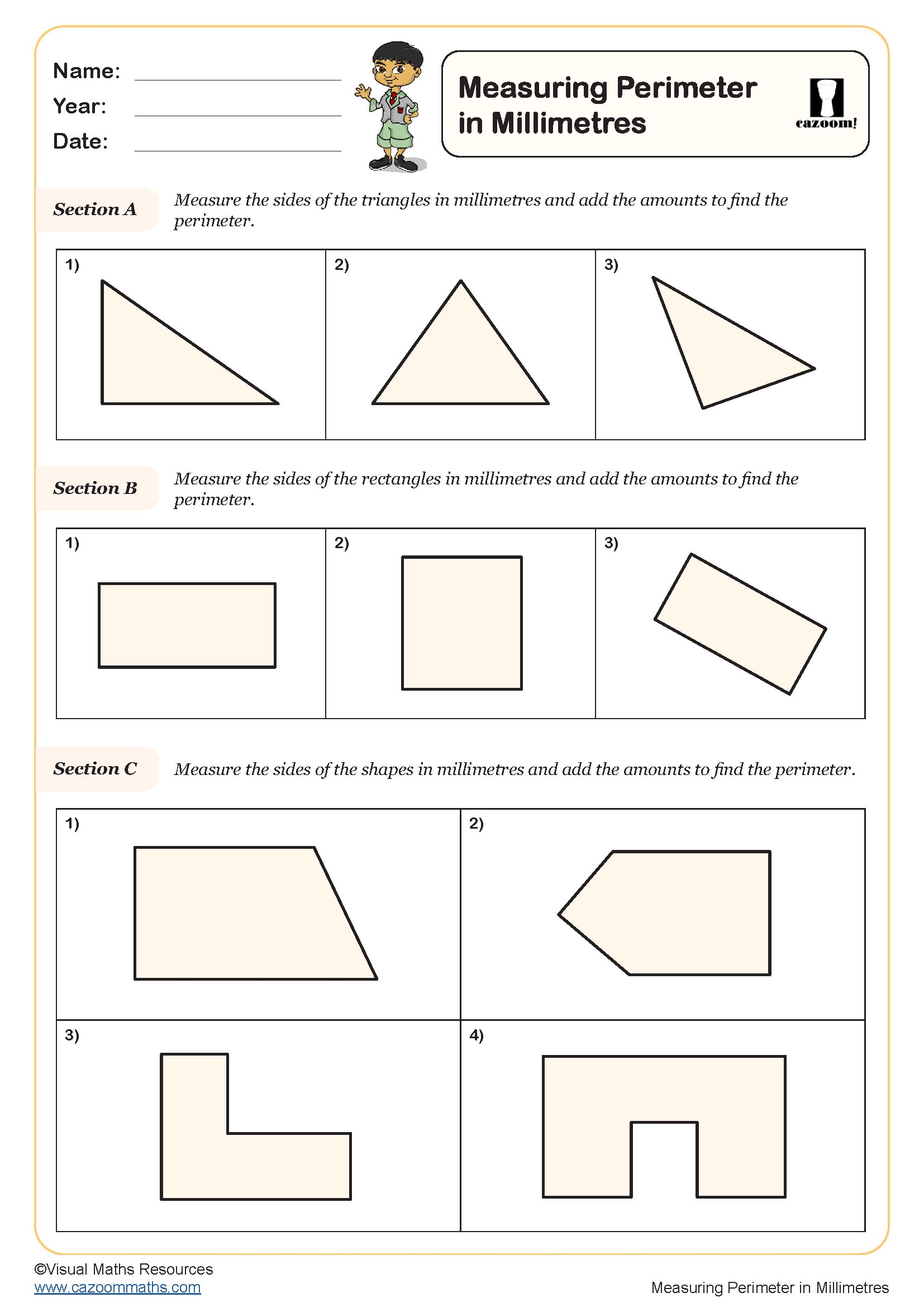
Pounds and Pence to Decimals
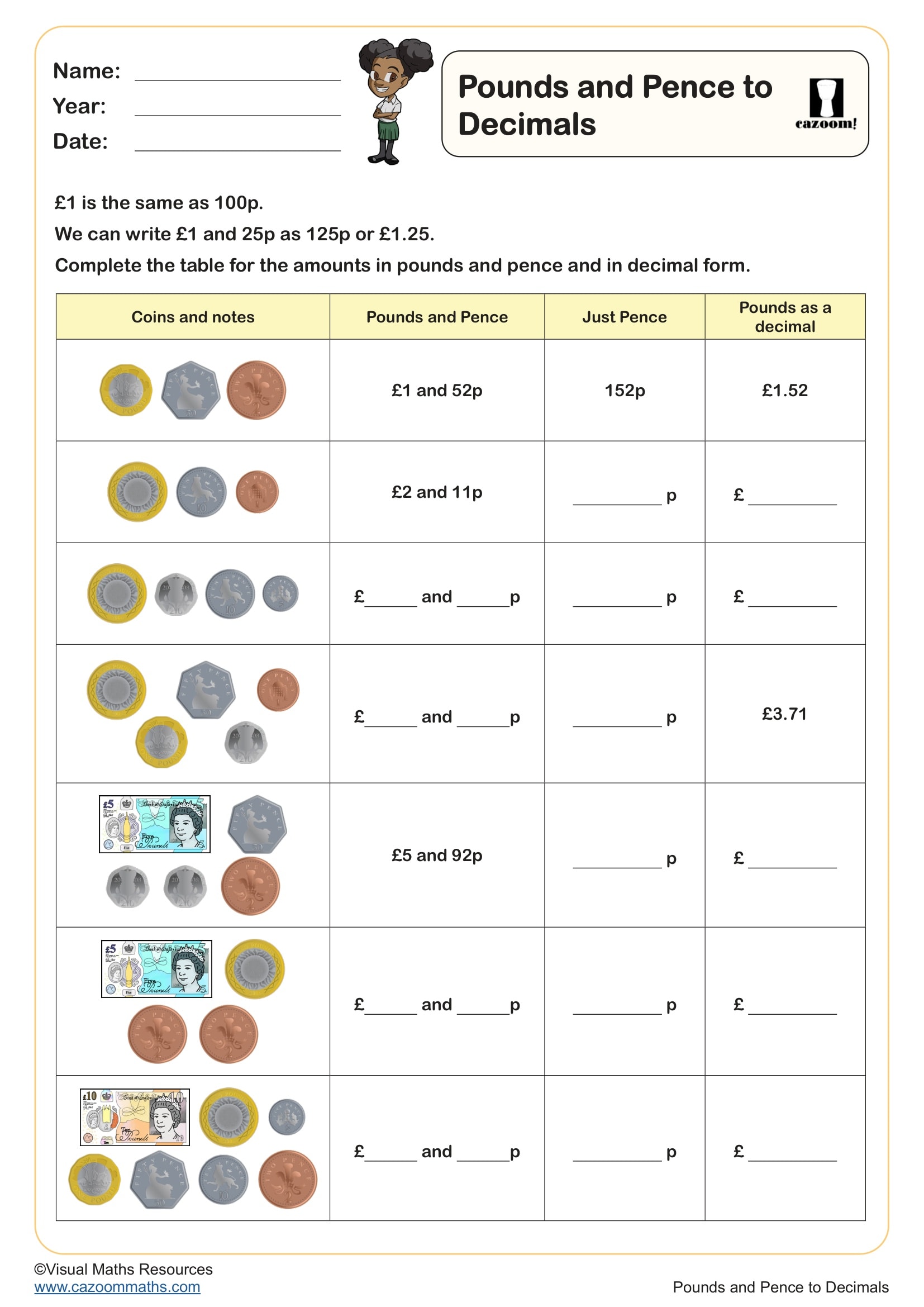
Telling the Time (A)
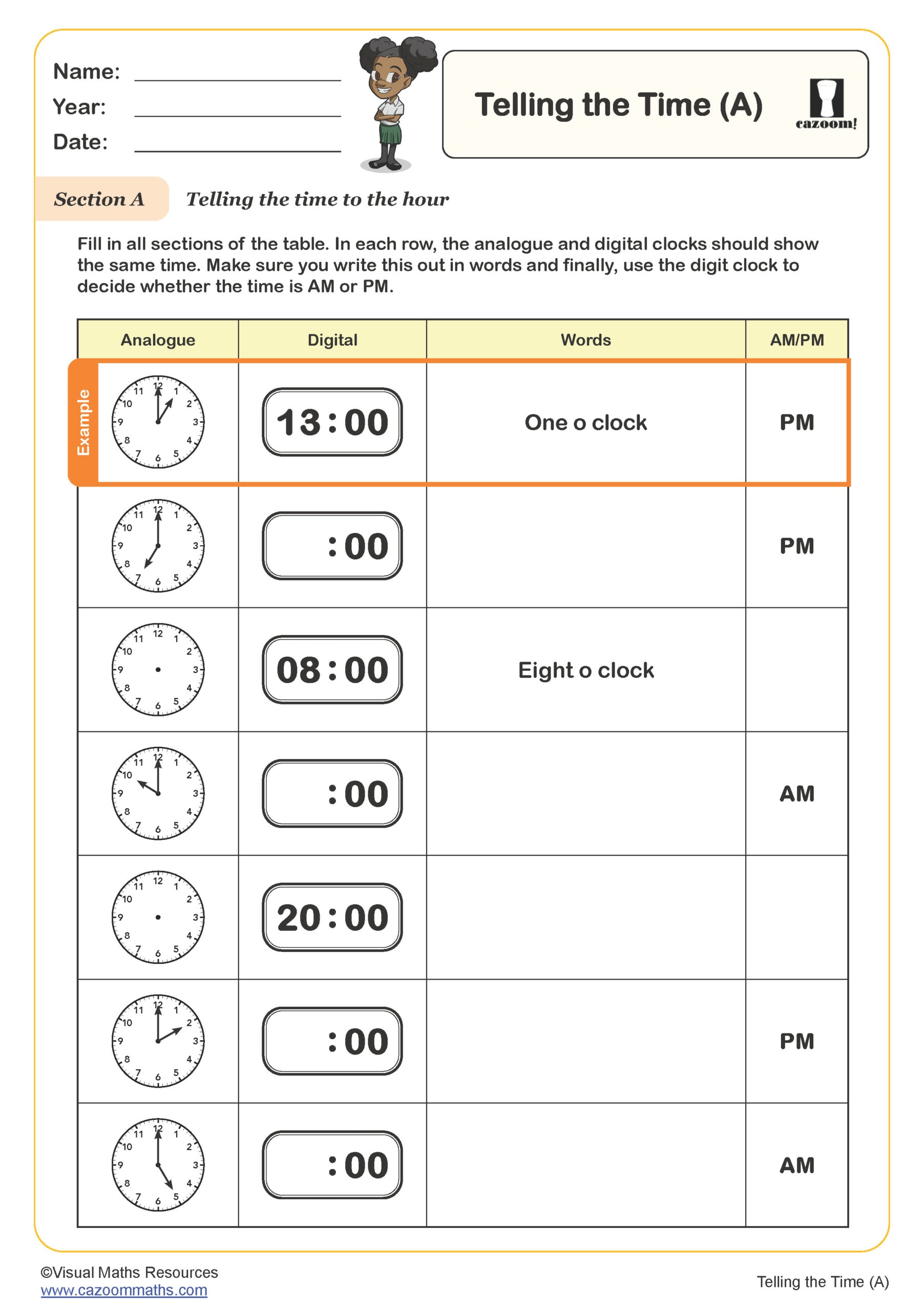
Telling the Time (B)
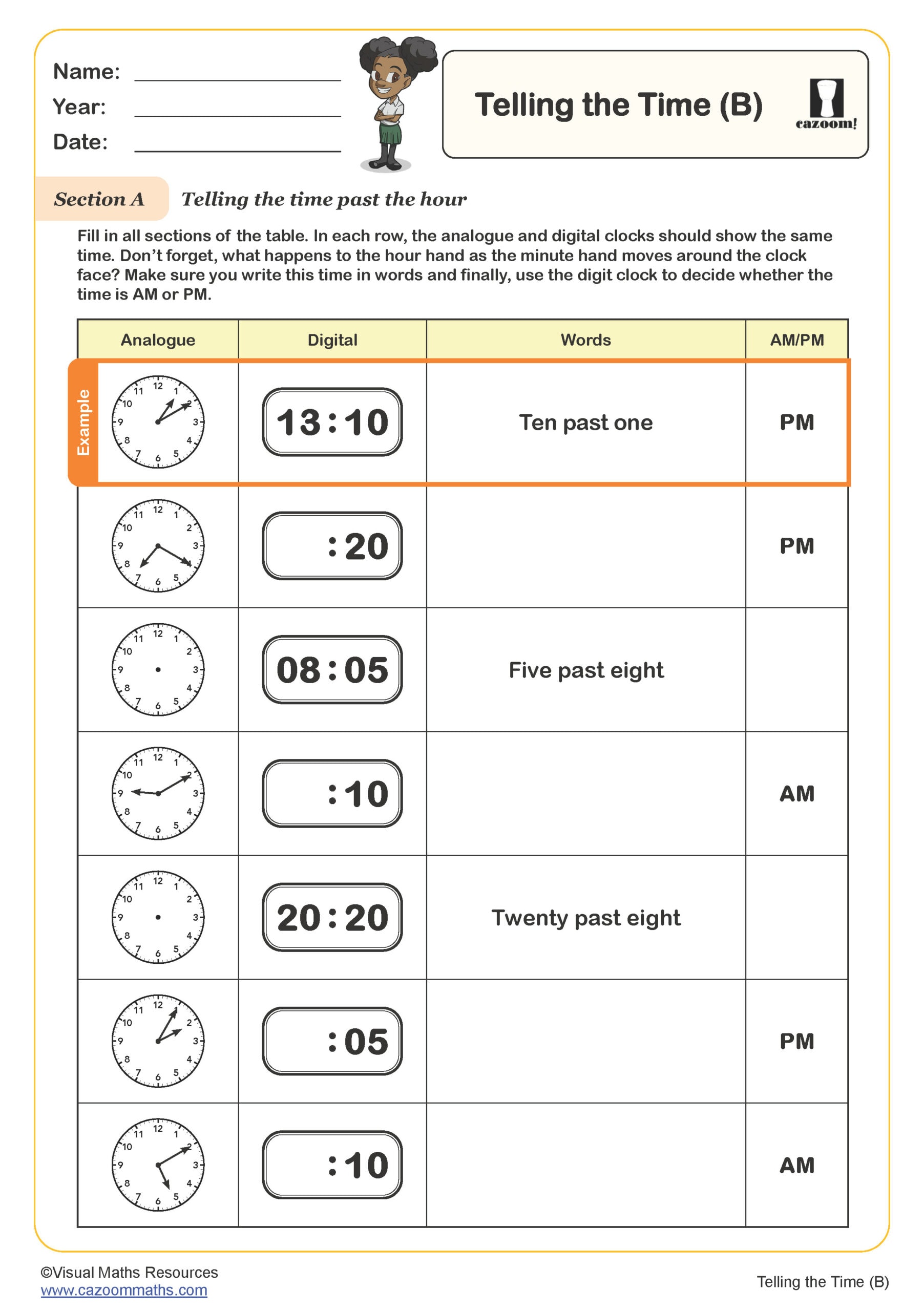
Telling the Time (C)
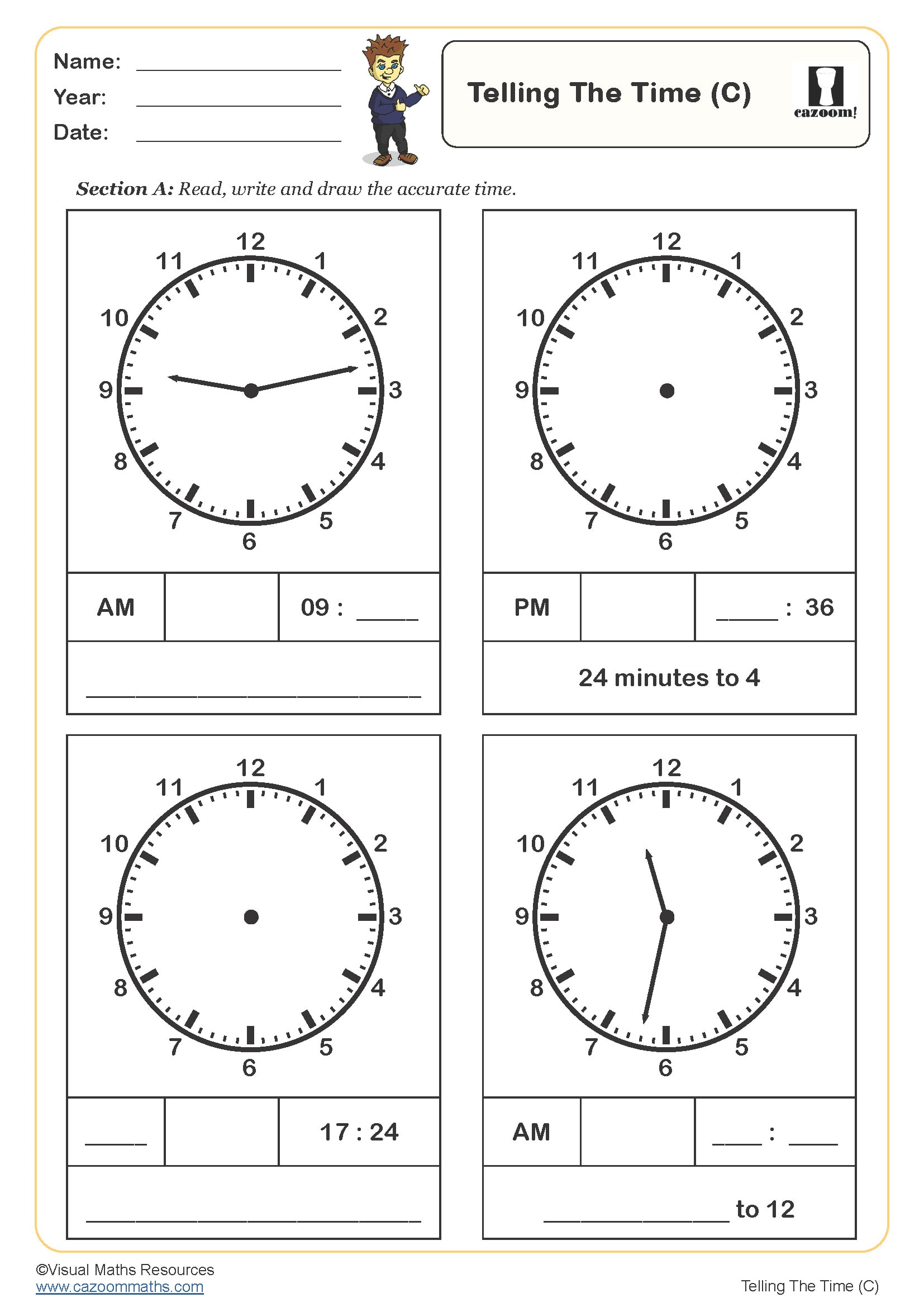
Using Metric Units (C)
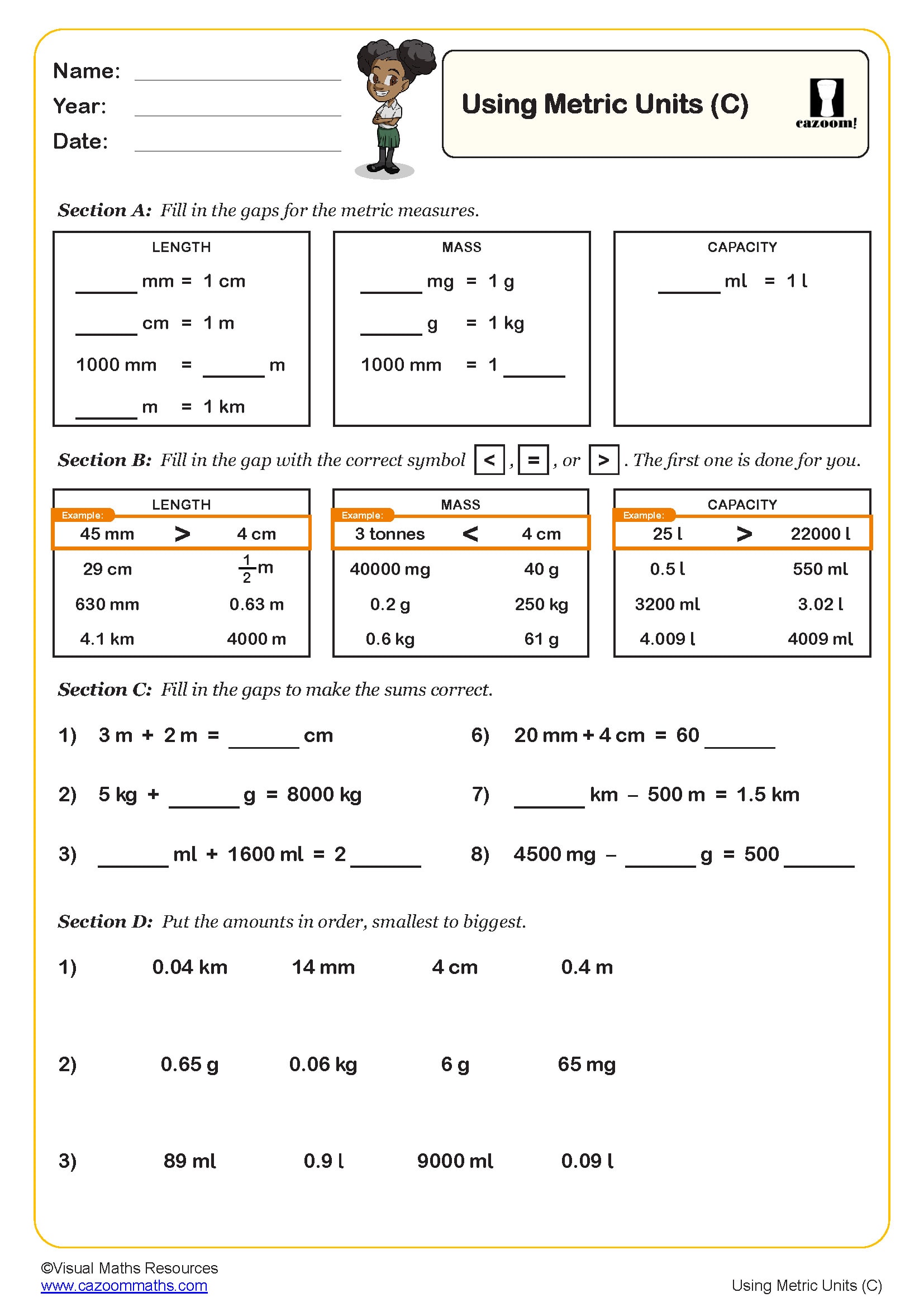
Using Metric Units (D)
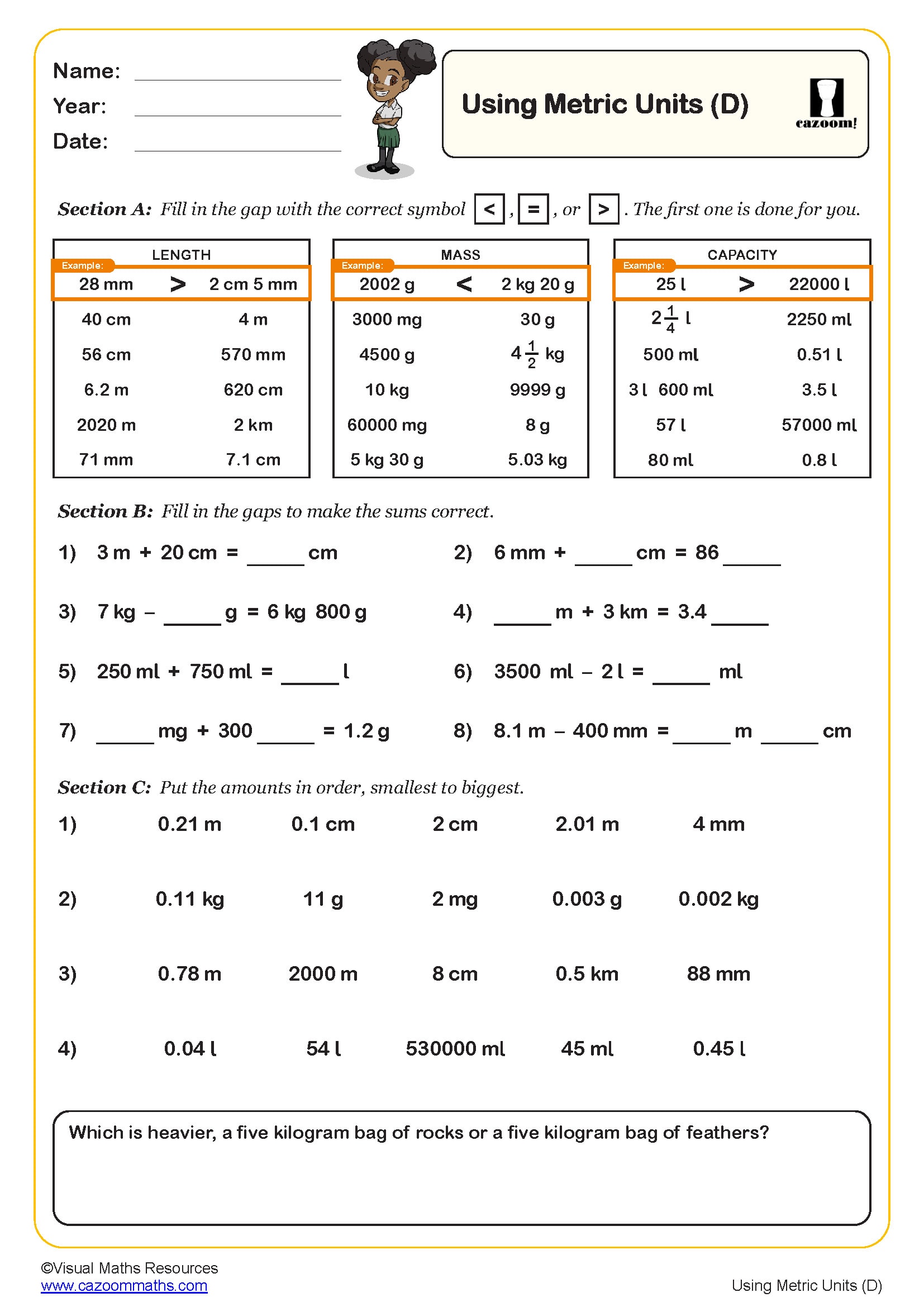
All worksheets are created by the team of experienced teachers at Cazoom Maths.
Complete Year 4 Metric Measures Worksheets PDF Collection with Step-by-Step Solutions
We have crafted these KS2 Metric Measures resources specifically for Year 4 teachers and parents who need materials that genuinely support the learning progression of their primary school children. Each of our ready-to-use, printable PDF worksheets focuses on core measurement skills—length, weight, capacity, and metric units—with detailed solutions that show students exactly how to approach each problem step-by-step.
Essential Metric Measures Skills Covered in Our Year 4 Collection
We've packed quite a lot into these Metric Measures worksheets! Students progress from basic measuring with rulers to comparing different units and solving measurement word problems. We have included concepts like adding and subtracting litres and millilitres, measuring perimeter in millimetres, using metric units, and more. The hands-on activities (surprisingly popular with our test classes) include measuring classroom objects, comparing weights, and working with capacity using familiar containers. These worksheets build confidence through structured practice that mirrors real KS2 assessment expectations.
Why KS2 Students Need Targeted Metric Measures Practice Worksheets
It is evident that the students who get regular, focused practice absolutely outperform those who only encounter Metric Measures occasionally. These worksheets provide the consistent reinforcement that turns Metric Measures from a scary topic into a confident skill set. Perfect for homework, intervention groups, or independent work during maths lessons.
• Builds confidence in using metric units, including litres, millilitres, metres, and kilometres
• Reinforces key skills through practical tasks like adding and subtracting volumes
• Strengthens understanding of length and perimeter using millimetres and metres
• Supports curriculum-aligned progression with varied Metric Measures challenges
• Engages students with clear, structured questions and real-life metric unit applications
Real-World Connections Where Students Apply Year 4 Metric Measures Skills
Metric Measures isn't just a maths topic—it’s a life skill that pops up in all sorts of places. We’ve seen how students light up when they realise they’re using Metric Measures in science experiments, art lessons, and even at home while cooking. That real-world connection boosts motivation and helps them see maths as something meaningful and useful every day.
Real-life learning examples include:
• Science activities: Tracking plant growth, recording temperature changes, and measuring liquids in experiments
• Design and technology: Accurately measuring materials, following recipe steps, and building projects
• Art lessons: Mixing paint in specific amounts or scaling up drawings
• PE lessons: Measuring jump distances, timing races, or recording personal bests
• At home: Helping weigh ingredients for dinner, understanding quantities on packaging, or comparing prices while shopping
• Everyday problem-solving: Figuring out if a table will fit in the room or how much paint is needed for a wall